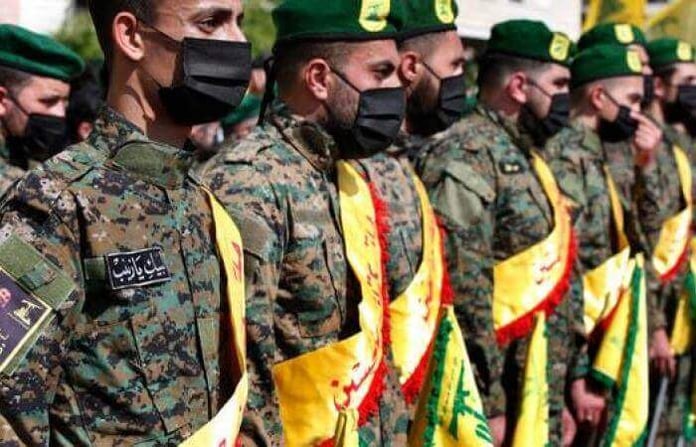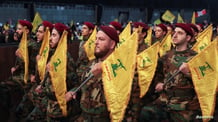
More than a month ago, the leader of the Hezbollah militia in Lebanon, Hassan Nasrallah, entered the line of the fuel crisis that the country is witnessing, waving Iran’s willingness to send materials and the Lebanese currency, and threatening that if the state remained silent in this regard, his party would go to Tehran and negotiate the purchase of petrol and diesel ships.
Although the party’s offer puts Lebanon in the eye of the sanctions storm as a result of dealing with Iran, it seems that it will be translated on the ground starting in the middle of next week, according to information circulating in its circles.
Although Nasrallah challenged the Lebanese state by pointing out that Iranian petrol ships will sail in the direction of Beirut port, to anchor there before unloading their cargo, the winds did not flow as his ships wanted, because Beirut port, which has been afflicted since August 4 as a result of the explosion that hit it, will not be a safe passage for Iranian gasoline.
According to well-informed circles who spoke to Al-Arabiya.net, the leader of Hezbollah, who insisted on bringing Iranian ships into Lebanon through the port of Beirut, abandoned the idea based on the advice of one of his allies that Lebanon could not tolerate more sanctions against him, so he agreed with the Iranian leadership to have Baniyas port in Syria, the destination of Iranian oil ships.
The circles indicated that Iranian petrol ships, likely numbering 4, are now at Baniyas port, and they will be unloaded starting next week, as it is rumored, through tankers to be transported directly to Lebanon.
The circles also made it clear that Hezbollah has prepared the infrastructure for the delivery of fuels, which will mainly benefit the people of its environment in the Bekaa, the South, and the Southern Suburbs, and has completed the preparation of a number of facilities for storing gasoline.
In a related context, well-informed circles suggested that the “Amanah” fuel stations, which are spread on various Lebanese territories, and which were included in the sanctions list last year because of their association with “Hezbollah”, as indicated by the US Treasury statement, would take the largest share of Iranian gasoline.
She explained that the aim of Hezbollah’s move is to float the Lebanese market with gasoline and diesel fuel, especially in the areas affiliated with it, in order to alleviate the resentment that has escalated against it during the recent period, blaming it for the deterioration of the living and economic conditions in the country.
As for the price of Iranian gasoline, the circles indicated that it will not differ from the price approved in the Lebanese market.
Exposing Lebanon to sanctions
On the other hand, the former Director-General of Investment in the Ministry of Energy and Water, Ghassan Baydoun, told Al Arabiya.net that the Iranian gasoline would arrive in Lebanon from land via tankers, and would be distributed immediately to stations that would in turn store it for several days before disbursing it.
He also considered that Hezbollah, with this step, will return part of the gasoline that was smuggled with its sponsorship or protection from Lebanon to Syria in the recent period.
While the director of the Levant Institute for Strategic Affairs, Dr. Sami Nader, ruled out for Al Arabiya.net that Iranian gasoline would enter Lebanon through official crossings, because that would expose the country to more sanctions.
It is noteworthy that Lebanon has been suffering for weeks from a severe fuel crisis, as citizens wait in long queues in front of gas stations that have adopted a policy of rationing in the distribution of gasoline and diesel.













